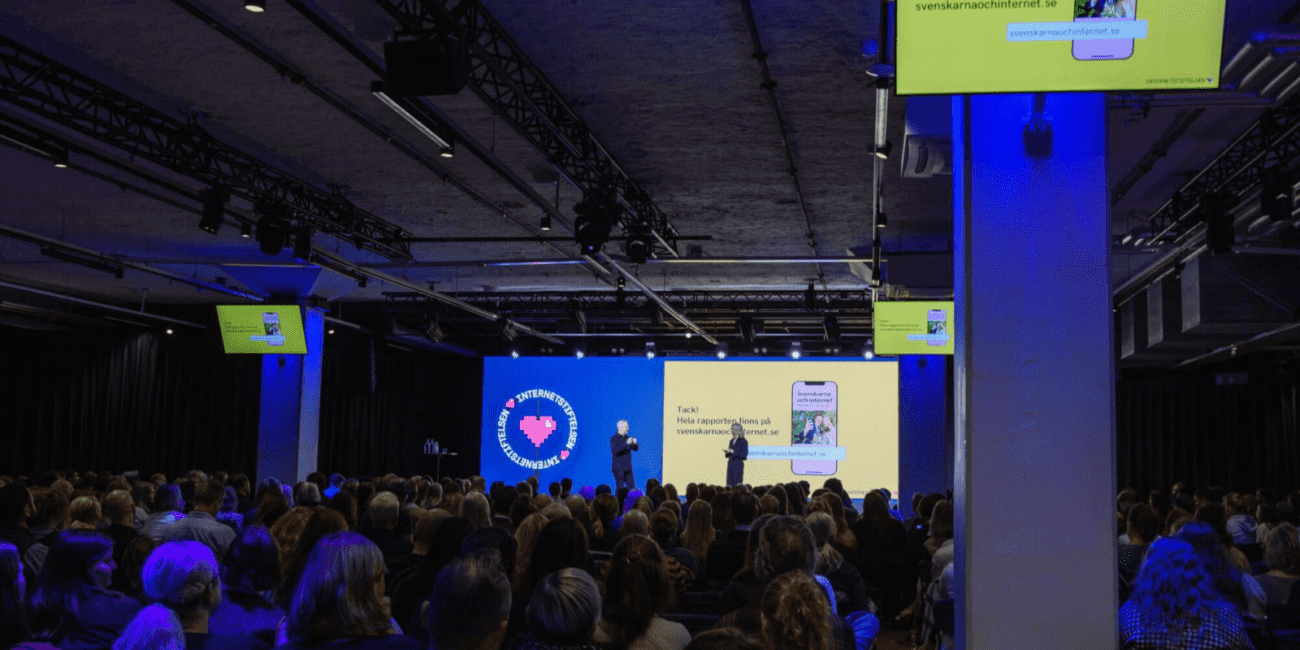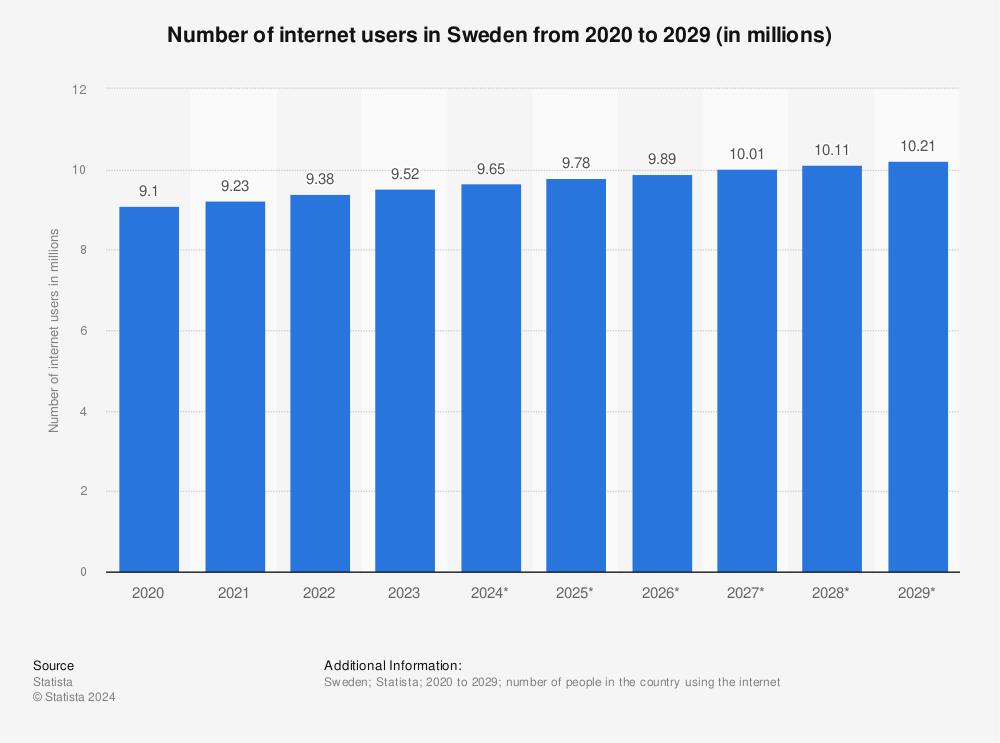Have you ever wondered how the Swedes use the internet in 2024? Whether it’s for work, entertainment, or staying connected, their online habits might surprise you.
Imagine discovering simple ways they stay safe, save time, and enjoy the web like never before. This article will show you exactly how Sweden’s digital world works today—and how you can learn from it. Keep reading to unlock insights that could change the way you use the internet forever.

Credit: sanfrancisco.fi
Digital Connectivity In Sweden
Sweden leads Europe in digital connectivity in 2024. The country focuses on fast internet and strong mobile networks. Swedish people enjoy easy access to online services and digital tools. This access helps businesses grow and supports education and healthcare. Digital infrastructure is a key part of daily life across Sweden.
Nationwide High-speed Internet
Sweden offers high-speed internet to almost every home. Fiber-optic networks cover most cities and towns. Download speeds often reach hundreds of megabits per second. This speed supports streaming, gaming, and remote work. Sweden invests in expanding fiber networks to new areas constantly.
5g Expansion And Impact
5G networks spread quickly across Sweden in 2024. Cities enjoy strong 5G signals with fast data transfer. This network improves mobile internet for everyone. 5G helps new technologies like smart homes and self-driving cars. Sweden’s 5G rollout drives innovation in many industries.
Rural Vs Urban Access
Urban areas have the best internet speeds and coverage. Rural regions face challenges with slower connections and fewer options. The government works to close this gap by funding new projects. Satellite internet also helps bring service to remote places. Sweden aims for equal digital access for all citizens.
Online Behavior Shifts
In 2024, Swedes show clear changes in how they use the internet. These shifts affect social media, streaming, and online shopping. The internet shapes daily habits and brings new ways to connect, watch, and buy. Understanding these shifts helps explain Sweden’s digital life today.
Social Media Trends
Swedes spend more time on social media than before. Platforms with short videos gain more users. People prefer quick, fun content that fits busy schedules. Privacy concerns rise, so many users limit sharing personal details. Messaging apps stay popular for private chats and group talks.
Streaming And Entertainment
Streaming services attract a growing audience in Sweden. Users watch shows and movies on demand, skipping traditional TV. Local content gains attention alongside global hits. Podcasts and audiobooks also see more listeners. Entertainment adapts to mobile devices, making it easy to watch anywhere.
E-commerce Growth
Online shopping grows fast in Sweden this year. More people buy clothes, food, and electronics online. Mobile shopping apps become common and easy to use. Consumers expect fast delivery and clear return policies. Sustainable and local products get more interest from buyers.
Privacy And Data Security
Privacy and data security are top concerns for Swedes online in 2024. People want control over their personal information. They expect their data to be safe from theft or misuse. Trust in digital services depends on strong privacy rules and good security. Sweden works hard to protect its citizens’ online privacy.
Government Regulations
The Swedish government enforces strict data protection laws. These laws follow European Union rules like GDPR. Companies must inform users about data use. They need user consent before collecting personal information. Authorities also check businesses to ensure they follow the rules. Penalties for breaking privacy laws are high. These steps help keep Swedish internet users safe.
Public Awareness
Swedes are aware of online privacy risks. Schools teach children about safe internet habits. Many adults read about data security regularly. People use tools like VPNs and ad blockers to protect themselves. Social media users control their privacy settings carefully. This awareness lowers the chance of falling for scams or data theft. Privacy is a common topic in Swedish conversations.
Cybersecurity Innovations
Sweden invests in new technology to improve online security. Companies develop stronger encryption methods. These protect messages and personal files from hackers. Banks use advanced systems to detect fraud quickly. Swedish startups create apps that help users manage privacy. AI tools monitor networks for unusual activity. Innovation keeps Sweden one step ahead of cyber threats.

Credit: www.statista.com
Smart Cities And Iot
Sweden is moving fast with smart cities and the Internet of Things (IoT). These technologies help cities run better and make life easier for people. IoT connects devices and systems to share data and work together. This connection improves how cities manage energy, traffic, and public services. Sweden’s focus on smart cities shows a strong push toward innovation and better living.
Connected Infrastructure
Swedish cities use sensors and networks to link roads, buildings, and utilities. This connected infrastructure helps monitor traffic flow and reduce jams. Streetlights adjust automatically to save energy and improve safety. Water and waste systems get real-time updates to avoid problems. This smart setup makes cities more efficient and responsive.
Sustainability Efforts
IoT plays a big role in Sweden’s green goals. Smart meters track energy use in homes and businesses. Cities use data to lower pollution and manage resources wisely. Electric vehicle charging stations connect to city grids for better power use. Smart parks and green spaces get automatic watering only when needed. These efforts help Sweden protect the environment and cut waste.
Citizen Engagement
Swedes use apps and online tools to join city planning and decisions. Citizens report issues like broken streetlights or potholes quickly. Feedback from residents helps improve public services and urban design. Digital platforms also share news about city projects and events. This open communication builds trust and makes communities stronger.
Digital Education And Work
Digital education and work have become central in Sweden’s internet landscape in 2024. Technology shapes how Swedes learn and perform their jobs every day. Schools, universities, and companies use new tools to stay connected and productive.
More students and workers rely on digital platforms. These changes affect skills, work habits, and education styles. The focus is on flexibility, access, and continuous learning.
Remote Learning Adoption
Remote learning is common across Sweden. Many schools offer online classes alongside in-person lessons. Students can join lessons from home or anywhere with internet access. This approach helps students with busy schedules or those living far from schools. Teachers use video calls, quizzes, and digital homework tools. Students enjoy more freedom and control over their learning pace.
Hybrid Work Models
Swedish companies widely use hybrid work models. Employees split time between office and home. This setup reduces commuting and increases work-life balance. Offices adapt to support both remote and in-person workers. Meetings happen online or face-to-face depending on needs. Many workers feel more focused and less stressed with this flexibility. Employers save costs on office space and utilities.
Skill Development
Continuous skill development is vital in Sweden’s digital age. Many people take online courses to learn new skills. Digital platforms offer lessons in languages, programming, and business. Workers need new skills to stay competitive and adapt to changes. Employers encourage training and skill upgrades regularly. Lifelong learning is part of Swedish work culture now.

Credit: www.weselect.com
Emerging Technologies
Sweden leads in adopting new internet technologies in 2024. Emerging tech shapes daily life and business. The country invests in tools that improve online experiences and security.
Swedes explore smart systems, virtual worlds, and secure digital records. These trends show how technology changes fast and impacts everyone.
Ai Integration
Artificial intelligence helps Swedes work and live smarter. AI powers chatbots, personal assistants, and recommendation systems. Businesses use AI to improve customer service and speed up tasks. Schools and hospitals also adopt AI to offer better support. The technology learns from data and adapts to users’ needs.
Virtual And Augmented Reality
Virtual reality (VR) and augmented reality (AR) grow in popularity. Swedes use VR for gaming, education, and virtual travel. AR adds digital layers to the real world through smartphones and glasses. Museums and shops use AR to give more information and fun experiences. These technologies make the internet more interactive and real.
Blockchain Applications
Blockchain technology secures online transactions and data storage. Sweden tests blockchain for banking and government records. It helps prevent fraud and increases trust. People use blockchain for digital IDs and safe voting systems. The technology offers a transparent way to manage information.
Frequently Asked Questions
How Do Swedes Use The Internet In 2024?
Swedes use the internet mainly for streaming, online shopping, and social media. Remote work and e-learning are also popular. High-speed internet access is widespread across Sweden, supporting digital communication and entertainment efficiently.
What Are Sweden’s Top Online Trends In 2024?
In 2024, Swedes favor sustainable e-commerce, mobile payments, and personalized content. Virtual reality and AI-powered services are rapidly growing. These trends reflect Sweden’s tech-savvy population and environmental awareness.
How Secure Is Internet Use In Sweden Today?
Sweden has strong internet security laws and high user awareness. Most Swedes use VPNs and two-factor authentication regularly. Cybersecurity education is widespread, helping protect individuals and businesses from online threats.
What Role Does Internet Play In Sweden’s Education System?
The internet is essential for Sweden’s education, enabling remote learning and digital resources. Schools use online platforms for collaboration and assignments. This enhances accessibility and modernizes the educational experience nationwide.
Conclusion
Swedes use the internet daily for work, school, and fun. Their online habits show a strong focus on safety and privacy. Streaming, social media, and online shopping remain very popular. Mobile internet use keeps growing fast across all age groups.
Sweden’s digital world keeps changing with new trends and tools. People stay connected while valuing security and easy access. The internet shapes how Swedes live and communicate in 2024. A digital future full of chances and challenges awaits them.

